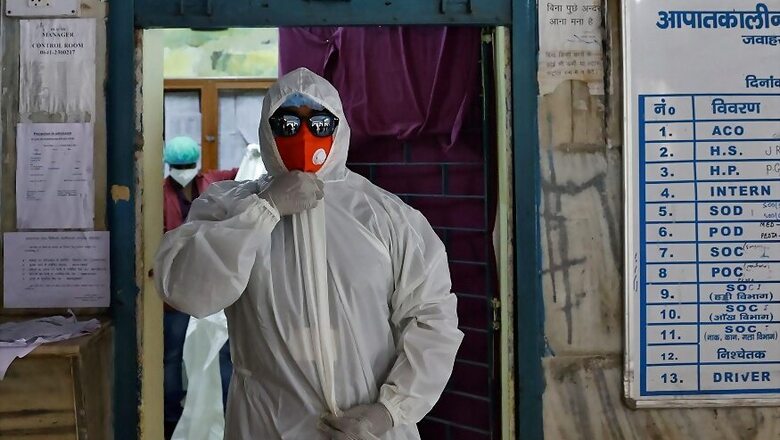'Black' Fungal Disease that Causes Blindness, Death Strikes Guj after Covid-19; Kills 9 in Ahmedabad

views
Even as the coronavirus pandemic looms over India, another deadly disease outbreak has alerted authorities. Mucormycosis, a rare but deadly fungal disease, has been making news, with cases coming up in Delhi, Mumbai and Ahmedabad in Gujarat.
According to a report in India Today, out of the 44 recent cases of mucormycosis in Ahmedabad, nine patients died. The infection has also resulted in eyesight loss for some people.
During this month, ENT surgeons at Sir Ganga Ram Hospital (SGRH) have seen many cases of “Covid-triggered mucormycosis“.
This alarming affliction, although rare, is not new. What is new is COVID-19 triggering mucormycosis, they said. Black Fungus or mucormycosis has been a cause of disease and death of patients in transplants, and ICU and immunodeficient individuals since long. However, it is the rapid increase in the numbers seen in unsuspected recovering COVID-19 patients that is causing the grave concern, the SGRH said in a statement.
“In the last 15 days, ENT surgeons have seen 13 cases of COVID-19-triggered mucormycosis in over 50 per cent patients, with loss of eyesight, and removal of nose and jaw bone needed,” it said. Mortality is currently being seen in the range of 50 per cent (five patients), with certain deaths when there is involvement of brain, the hospital authorities said.
What is Mucormycosis?
It is severe but rare fungal infection caused by a group of moulds called mucormycetes. These molds are present naturally in the environment. Typically, the infection begins in the nose and spreads to the eyes. Although the patient can be healed by a fast diagnosis and treatment, left untreated, it may prove fatal.
It paralyses the muscles around the eye’s pupils as the infection progresses, leading to blindness. When the fungal infection spreads to the brain, it may cause meningitis.
“These fungi aren’t harmful to most people. However, for people who have weakened immune systems, breathing in mucormycete spores can cause an infection in the lungs or sinuses which can spread to other parts of the body,” the CDC writes.
The CDC also clarifies that Mucormycosis is not contagious. That means, it cannot transmit between people and animals. “Early recognition, diagnosis, and prompt administration of appropriate antifungal treatment are important for improving outcomes for patients with mucormycosis,” the CDC also states.
How Many Cases Till Now, and Who is at Risk?
Cases have been recorded at the Sir Gangaram Hospital in Delhi. Mumbai has also reported cases. A total of 44 hospitalisations, including nine deaths, due to mucormycosis, were recorded by the Ahmedabad Civil Hospital, reports state.
In Delhi, doctors had to do resections in about 10 patients over the last fortnight, with “about 50 per cent losing their eyesight permanently”. Five of these patients required critical care support due to associated complications. There also have been five mortalities so far in this subgroup, the statement by SGRH said. According to Manish Munjal, senior ENT surgeon, at the hospital, The frequency with which we are witnessing the occurrence of COVID-19-triggered mucormycosis with high morbidity and mortality has never been seen before and is shocking and alarming.”
Varun Rai, consultant ENT surgeon at SGRH said, “Early clinical suspicion on symptoms such as nose obstruction, swelling in the eye or cheeks, and black dry crusts in the nose should immediately prompt the conduct of a biopsy in the OPD and start of the antifungal therapy as early as possible.”
Dr. Bela Prajapki, head of ENT at Ahmedabad Civil Hospital told India Today TV that all the cases reported so far were of patients over 50 years of age and suffering from diabetes or other diseases.
Read all the Latest News, Breaking News and Coronavirus News here




















Comments
0 comment